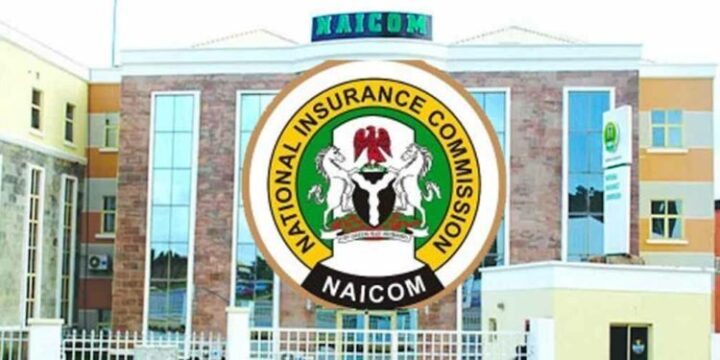The National Insurance Commission (NAICOM) has officially blacklisted several former directors of African Alliance Insurance Plc, marking a significant move in its ongoing drive to strengthen corporate governance and accountability in Nigeria’s insurance industry. The development comes after an extensive regulatory review into the company’s operations, where lapses in management practices and breaches of regulatory guidelines were uncovered.
According to NAICOM, the decision to sanction the former directors follows investigations that pointed to persistent failures in governance, compliance, and risk management structures within African Alliance. The commission stated that the leadership style of the sacked directors contributed to weak financial discipline and inefficiencies that undermined policyholder confidence, threatening the firm’s long-term stability. By placing these directors on a blacklist, NAICOM has effectively barred them from holding board-level or senior management positions in any insurance or reinsurance company regulated under Nigerian law.

This decision, regulatory experts say, sends a strong message across the insurance landscape. It underscores NAICOM’s renewed determination to enforce strict oversight, particularly as Nigeria’s insurance sector struggles with issues of low penetration, trust deficits, and growing competition. Analysts believe the move is also aligned with NAICOM’s broader reforms to position the insurance industry as a reliable player in the financial services sector and to protect policyholders from mismanagement.
African Alliance Insurance, one of Nigeria’s oldest life insurers, has faced turbulent times in recent years. Once seen as a strong player in the life insurance segment, the company’s fortunes declined amid operational challenges, delayed claims payments, and questions around its financial health. NAICOM had repeatedly flagged these concerns, issuing directives aimed at strengthening the company’s corporate governance and urging the board to implement reforms. However, with continued lapses, the regulator decided stronger action was necessary.
For policyholders, NAICOM reassured that its intervention was aimed at safeguarding their interests. The commission emphasized that the blacklisting of directors does not affect the validity of existing insurance contracts with African Alliance. Instead, the step was necessary to restore order and rebuild the company’s credibility by ensuring that individuals responsible for poor governance no longer have influence in the sector.
Industry watchers have welcomed the move, noting that such decisive enforcement is long overdue in Nigeria’s insurance market. They argue that the absence of strong accountability measures has long enabled weak governance practices, where directors escape responsibility for financial and managerial missteps. By barring these individuals from the industry, NAICOM has created a precedent that is expected to deter future misconduct.
At the same time, the commission has encouraged African Alliance to refocus on its recovery efforts. A new board and management team have been tasked with implementing corrective measures, including tightening internal controls, restructuring operations, and clearing outstanding claims. NAICOM has promised close monitoring to ensure that the company regains financial stability and rebuilds customer confidence.
The blacklisting also raises broader questions about governance culture across Nigeria’s corporate space. Governance failures have been a recurring problem in several sectors, often leading to crises that hurt investors and consumers alike. With this move, NAICOM has added its weight to the growing list of regulators—including the Central Bank of Nigeria (CBN) and the Securities and Exchange Commission (SEC)—that are insisting on higher governance standards.
Stakeholders in the insurance industry believe that restoring trust will be critical to deepening insurance penetration in Nigeria, which remains below 2 percent despite a large and growing population. One major reason cited for low patronage is the public’s lack of faith in insurance firms to pay claims promptly or operate transparently. Analysts say NAICOM’s latest step could help reverse this perception if consistently applied across the industry.
For investors, the blacklisting signals a shift toward accountability and transparency. It suggests that regulators will no longer tolerate mismanagement that puts shareholder funds and policyholder claims at risk. Some industry observers expect this decision to attract more responsible investment into the insurance sector, as the regulatory environment becomes stricter and more predictable.
The move also has implications for talent mobility within the industry. With the sacked directors banned from future leadership roles, it opens space for a new generation of professionals to emerge in Nigeria’s insurance market. Industry experts suggest that this could bring innovation, stronger compliance culture, and more customer-focused practices into the sector.
Despite the positive reception, some industry players caution that NAICOM must ensure that such sanctions are consistently enforced and not limited to a few cases. They argue that selective enforcement could undermine the credibility of regulatory interventions. Others also stress that beyond punishment, NAICOM should support struggling firms with technical assistance and capacity-building measures to foster long-term sectoral growth.
Looking forward, African Alliance’s ability to bounce back will depend largely on its new leadership and strategic focus. The company has been urged to prioritize transparency, rebuild its claims settlement record, and invest in digital transformation to regain competitiveness. The broader insurance industry will also be watching to see whether this regulatory action translates into stronger discipline across the board.
In the coming months, NAICOM is expected to continue rolling out its reforms, including stricter recapitalization guidelines and compliance requirements for operators. The blacklisting of African Alliance’s former directors could therefore be seen as part of a larger framework aimed at cleaning up the industry and positioning it for growth.
As Nigeria pushes for economic diversification, insurance is increasingly recognized as a critical pillar for financial inclusion, risk management, and investment mobilization. Regulators argue that for this role to be realized, governance structures must be strengthened, and accountability must be enforced. NAICOM’s latest move is therefore not only about punishing past missteps but also about signaling a new era of discipline in Nigeria’s insurance industry.
Support InfoStride News' Credible Journalism: Only credible journalism can guarantee a fair, accountable and transparent society, including democracy and government. It involves a lot of efforts and money. We need your support. Click here to Donate
